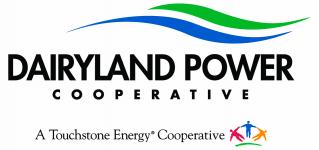Dairyland complies with all rules and regulations that apply to our operating fleet and is reviewing the EPA’s 681-page proposed rule. The rule, as written, will jeopardize reliability, safety and calls for utilization of technologies that are not tried and tested at this scale. It will also, ironically, impede the clean energy transition if facilities such as the Nemadji Trail Energy Center (NTEC) are not available to support renewable energy generation.
NTEC is a planned combined-cycle natural gas plant that will provide power on-demand in any weather, while adjusting quickly for the ups and downs of renewable energy generation availability. Flexible and low-emitting, NTEC will be a critical capacity resource in a time when resource adequacy is declining significantly due to the retirement of traditional plants. Reliability is essential to ensure safety and to support our modern lives.
A 2022 study on the impacts of NTEC on greenhouse gas emissions found NTEC’s construction will significantly reduce emissions by:
- Supporting wind energy dispatch
- Displacing higher emission fossil fuel plants
The study also found that NTEC will:
- Reduce CO2 emissions by an average of 964,000 tons per year, the equivalent of removing more than 190,000 internal combustion engine cars from the road each year
- Reduce transmission congestion across the region, which results in more generation from renewable resources
Early takeaways from the proposed EPA rule indicate that if NTEC operates as an intermediate load (capacity factor that is between 20% and approximately 50%), the facility would be able to comply with the proposed rule as constructed. NTEC's design does include the potential for hydrogen; however, the technology remains untested and the infrastructure to deliver hydrogen at scale does not currently exist. Similarly, carbon capture and sequestration (CCS) technology is also not in commercial operation in the U.S. today.
The proposed regulations will also impact the existing fleet of resources at a time when NERC, FERC and MISO are warning that continued retirement of dispatchable resources, combined with replacement by intermittent sources of energy like wind and solar, will only further exacerbate reliability risks.
Dairyland fully supports and invests in solar, wind and emerging technologies, including our current exploration of pumped storage hydro and small modular reactors. We are actively seeking to expand investment in low-carbon resources and look forward to the 149 MW Badger State Solar facility achieving commercial operation. At the same time, we will also continue to educate on the critical importance of always-available facilities that can ramp up in minutes to keep the lights on and support the journey to lower-carbon resources.
As part of the regulatory analysis process, Dairyland will participate in the proposed rule’s public comment period to share our concerns on behalf of our members, energy consumers and the environment.
